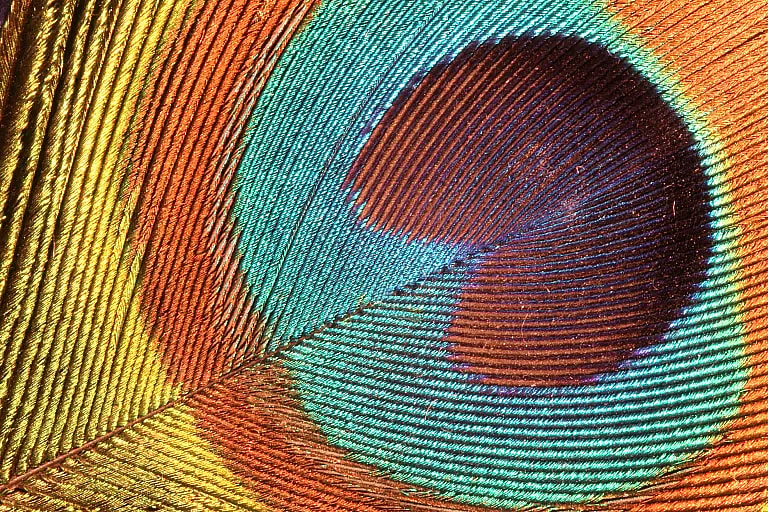What is Gastroesophageal Reflux Disease?
[trp_language language=”en_US”]
Gastroesophageal reflux disease, commonly known as GERD or GORD, is a condition in which stomach acid leaks backward up the esophagus, the tube between the mouth and stomach. It is a common condition, especially in people over the age of 40 and pregnant women. People who smoke and/or regularly drink alcohol, and those who are obese are also more likely to develop GERD.
Common symptoms include burning pain in the chest (heartburn) and an acidic taste in the mouth. The symptoms of GERD can be managed through diet and lifestyle changes, for example, losing weight, quitting smoking and/or reducing alcohol intake, and taking medications to reduce stomach acidity. Gastroesophageal reflux disease can generally be effectively and well managed and usually causes no long-term problems.
Gastroesophageal reflux disease (GERD) vs. Gastroesophageal reflux
It is important to recognize the difference between gastroesophageal reflux disease (GERD) and gastroesophageal reflux, also known as acid reflux.
Acid reflux is the backward flow of stomach acid up into the throat. This may cause a burning sensation in the chest, and this symptom is commonly referred to as heartburn. Acid reflux, and associated heartburn, are fairly common, and if it only occurs occasionally it is often non-serious. However when it occurs frequently, or in combination with other symptoms, it may be an indicator that the affected person is experiencing gastroesophageal reflux disease.
Gastroesophageal reflux disease (GERD) vs. esophagitis
Esophagitis is the name given to inflammation of the esophagus. The condition can lead to symptoms including problems swallowing, pain in the chest, and, in more severe cases, bleeding may occur. This may involve the presence of blood in the vomit or in the stool. Gastroesophageal reflux disease is a common cause of esophagitis, along with certain eating disorders, such as bulimia, certain medications, and some infections.[1]
Signs and symptoms of gastroesophageal reflux disease (GERD)
Heartburn is the most common symptom of GERD. It is usually experienced as a burning or sharp sensation in the center of the chest which may spread to the throat. Typically, heartburn follows a meal, though it may also be triggered by lying down or bending over. In some cases, heartburn may occur at night, especially when lying flat without the head raised on a pillow.
Other signs and symptoms of GERD include:[2][3]
- Stomach pain
- Pain when swallowing and an acidic taste in the mouth.
- Bloating
- Getting full quickly
- Bad breath
- Non-burning chest pain
- A hoarse voice
- Nausea and/or vomiting
- Regurgitation of food
- Coughing and wheezing
- A persistent sore throat
- A feeling of a lump in the throat that is present despite swallowing
- Enamel erosion
The symptoms experienced and the severity of these symptoms may differ from person to person.
Some of these symptoms may also indicate a more severe condition. For this reason, it is always advisable to seek a professional medical opinion when symptoms occur.
Gastroesophageal reflux disease (GERD) causes
The esophageal sphincter, a circular band of muscle at the base of the esophagus, usually prevents acid from leaking. Gastroesophageal reflux disease occurs when the sphincter becomes weakened and does not function as well as it should. There are various reasons why this can happen, but, in some cases, the exact cause cannot be identified.[4]
Most people will experience acid reflux at some point in their lives, but some people are more at risk of developing GERD than others. These people include:[3][5]
- People over the age of 40
- Pregnant women
- Overweight or obese people
- People who smoke tobacco and drink alcohol and/or coffee regularly
- People who are under high levels of stress
- People with hiatus hernia, a condition involving part of the stomach pushing through the diaphragm
- People with certain other gastrointestinal conditions, like some malformations
- People with scleroderma, a rare condition that can cause the skin and internal organs to become thicker and hardened
Gastroesophageal reflux disease (GERD) diagnosis
Tests are often not necessary to confirm a diagnosis of GERD. A doctor will usually be able to identify the condition from a description of the symptoms being experienced. Tests, however, may be necessary if the symptoms are severe and/or other more serious conditions are suspected.
These tests may include:[2][4]
- A gastroscopy (endoscopy): Using a flexible telescopic tube, doctors are able to see inside the esophagus and stomach and identify any signs of inflammation or injury. This will typically be the first diagnostic test performed.
- Esophageal manometry: A tube is swallowed that is able to measure the muscle contractions of the esophagus and detect whether the sphincter is functioning as it should. Typically only performed if a gastroscopy is unrevealing.
- Acidity test: A test to check the acid levels in the esophagus may be ordered if a gastroscopy is unrevealing.
- Other tests: Alternative diagnostic tests, such as a chest X-ray or an electrocardiogram may also be ordered if the diagnosis is not certain or other conditions need to be ruled out.
Gastroesophageal reflux disease (GERD) complications
The majority of people who experience GERD do not develop any complications, particularly if the condition is managed well. However, complications are possible.
One of the most common complications of GERD is esophagitis, a condition involving inflammation of the esophagus. If esophagitis occurs, symptoms may include:
- Problems swallowing
- Pain in the chest
- In severe cases, bleeding, which may cause signs of blood in the stool and/or vomit
GERD is one of the most common causes of esophagitis, along with certain eating disorders, e.g. bulimia, as well as certain medications and some infections.[1]
Other, less common complications of GERD include:[2][6][7][8]
- Ulcers: Stomach acid moving up into the esophagus can cause esophageal ulcers. These ulcers may bleed. If this happens, the blood may not be noticed, unless it is detected in the vomit and/or stool.
- Stricture: If the esophagus becomes damaged, it can scar and narrow, potentially causing a blockage, or stricture. Strictures can vary in severity, but can potentially prevent food and medication from reaching the stomach. If a stricture occurs, professional medical treatment, which may include surgery, is required. If a stricture causes severe difficulty swallowing, this requires urgent medical attention and could progress to become a medical emergency.
- Barrett’s esophagus: A condition that occurs when the normal cells of the esophagus, the squamous cells, are replaced by intestinal cells, usually as a result of damage to the lining of the esophagus. Barrett’s esophagus is a risk factor for esophageal cancer.
- Esophageal cancer: Cancer as a complication of GERD is very rare. Difficulty swallowing and unintended weight loss are two of the most typical early symptoms. For more information, take a look at this comprehensive resource on esophageal cancer.
People worried that they may be experiencing symptoms of GERD or a complication of GERD should talk to a doctor. A list of Doctors can also be used to carry out a symptom assessment.
Gastroesophageal reflux disease (GERD) treatment
The treatment method used for gastroesophageal reflux disease will depend on the severity of the condition. Mild cases will usually be treated with lifestyle changes and over-the-counter medication.
Lifestyle changes include:[2][9][10]
- Losing weight through maintaining a healthy diet and undertaking regular exercise
- Avoiding reflux-inducing foods and drinks, such as caffeine, chocolate and alcohol
- Quitting smoking
- Avoiding late, very fatty and very large meals
- Reducing stress levels by learning and applying effective stress and health-management techniques
If medication is required, doctors will generally prescribe proton pump inhibitors. This type of medication is generally safe to use and causes few side effects. If the condition responds well to the medication, the affected person may only need to use them in the short term, usually for around eight weeks. However, if symptoms return, long-term use may be required. Antacids, such as H2-antagonists, may also be prescribed in some cases.
Gastroesophageal reflux disease (GERD) prevention
Losing weight through the maintenance of a healthy and balanced diet, moving around regularly, drinking less coffee, avoiding alcohol, quitting smoking, and learning better ways to deal better with daily stress can help to prevent gastroesophageal reflux disease. Treating the symptoms of gastroesophageal reflux can also help to prevent long-term complications of the condition.
Gastroesophageal reflux disease (GERD) FAQs
Are GERD and heartburn the same thing?
What is refractory gastroesophageal reflux disease (refractory GERD)?
Can I develop gastroesophageal reflux disease without esophagitis?
GERD without esophagitis seems to be particularly common in people with refractory GERD. Research suggests that the reflux in refractory GERD is often less acidic than in non-treated GERD, possibly explaining why the inflammation associated with esophagitis does not occur.[13][11]
Is there a natural cure for GERD?
Losing weight by following a healthy, varied, and balanced diet, and getting regular exercise
Avoiding acid reflux-inducing foods and drinks, such as overly fatty food, caffeine, chocolate, and alcohol
Quitting smoking
Avoiding late or overly large meals
What is the relationship between GERD and a hiatal hernia?
Can alcohol cause GERD?
Other names for gastroesophageal reflux disease
- Acid reflux disease
- GERD
- GORD
-
Harvard Health Publishing. “Esophagitis.” February, 2015. Accessed November 6, 2018. ↩ ↩
-
UpToDate. “Patient education: Acid reflux (gastroesophageal reflux disease) in adults (Beyond the Basics).” March 8, 2016. Accessed May 24, 2018. ↩ ↩ ↩ ↩
-
NHSinform. “Gastro-oesophageal reflux disease (GERD).” May 1, 2018. Accessed May 24, 2018. ↩ ↩
-
Patient. “Acid reflux and oesophagitis.” March 24, 2014. Accessed May 24, 2018. ↩ ↩
-
Amboss. “Gastroesophageal Reflux Disease.” September 7, 2018. Accessed November 6, 2018. ↩
-
NCBI. “Complications of gastro-oesophageal reflux disease.” June 27, 2013. Accessed May 24, 2018. ↩
-
Cleveland Clinic. “Long-Term Complications of Gastroesophageal Reflux Disease (GERD).” Accessed May 24, 2018. ↩
-
Medscape. “Esophageal Cancer Clinical Presentation.” April 30, 2018. Accessed November 6, 2018. ↩
-
NCBI. “Risk factors for gastroesophageal reflux disease and analysis of genetic contributors.” August 16, 2018. Accessed November 6, 2018. ↩ ↩
-
NCBI. “The Association Between Reflux Esophagitis and Psychosocial Stress.” February, 2013. Accessed November 6, 2018. ↩
-
UpToDate. “Approach to refractory gastroesophageal reflux disease in adults.” September 19, 2018. Accessed November 6, 2018. ↩ ↩
-
Gastroenterlogy Report. “Refractory gastroesophageal reflux disease.” February 1, 2015. Acessed September 27, 2018. ↩
-
Medscape. “How to Manage Refractory Gastroesophageal Reflux Disease: Refractory Gerd Without Esophagitis.” Acessed September 27, 2018. ↩
-
eMedicineHealth. “Hiatal Hernia.” Acessed September 27, 2018. ↩
-
NCBI. “The role of hiatus hernia in GERD.” Acessed September 27, 2018. ↩
-
NCBI. “Is alcohol consumption associated with gastroesophageal reflux disease?” June, 2010. Acessed September 27, 2018. ↩
[/trp_language]
[trp_language language=”ar”][wp_show_posts id=”8677″][/trp_language]
[trp_language language=”fr_FR”][wp_show_posts id=”8673″][/trp_language]
**Question: What is Gastroesophageal Reflux Disease (GERD)?**
**Answer:**
Gastroesophageal Reflux Disease (GERD) is a condition where stomach contents, including acids and enzymes, flow back into the esophagus. This can cause a burning sensation in the chest, known as heartburn, as well as other symptoms such as regurgitation, nausea, and difficulty swallowing.
**Symptoms of GERD:**
* Heartburn (burning sensation in the chest)
* Regurgitation (food or liquid backing up into the mouth)
* Nausea
* Difficulty swallowing
* Persistent cough
* Hoarseness
* Dental erosion
**Causes of GERD:**
GERD occurs when the lower esophageal sphincter (LES), a muscle that acts as a valve between the stomach and esophagus, becomes weakened or relaxes too often. This allows stomach contents to flow back into the esophagus. Factors that can contribute to GERD include:
* Hiatal hernia
* Obesity
* Smoking
* Certain medications
* Pregnancy
**Treatment for GERD:**
Treatment for GERD typically aims to reduce reflux and alleviate symptoms. It may include:
* Lifestyle modifications, such as losing weight, quitting smoking, and avoiding trigger foods
* Medications, including antacids, proton pump inhibitors, and H2 blockers
* Endoscopic procedures, such as radiofrequency ablation and endoscopic suturing
* Surgery, in severe cases
**Long-Term Effects of GERD:**
If left untreated, GERD can lead to complications such as:
* Esophagitis (inflammation of the esophagus)
* Barrett’s esophagus (a precancerous condition)
* Esophageal cancer
**Prevention of GERD:**
While not always preventable, certain lifestyle changes can help reduce the risk of developing GERD, including:
* Maintaining a healthy weight
* Avoiding tobacco use
* Eating smaller, more frequent meals
* Avoiding late-night eating
* Elevating the head of the bed when sleeping
* Wearing loose-fitting clothing
* Identifying and avoiding trigger foods
**Additional Information:**
* GERD affects about 20% of adults in the United States
* It is more common in pregnant women and people with overweight or obesity
* Early diagnosis and treatment are important to prevent complications








Gastroesophageal reflux disease (GERD) is a condition in which stomach contents flow back into the esophagus.